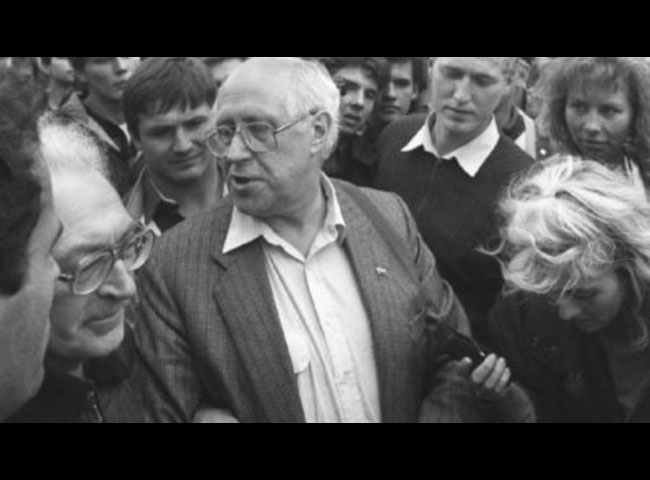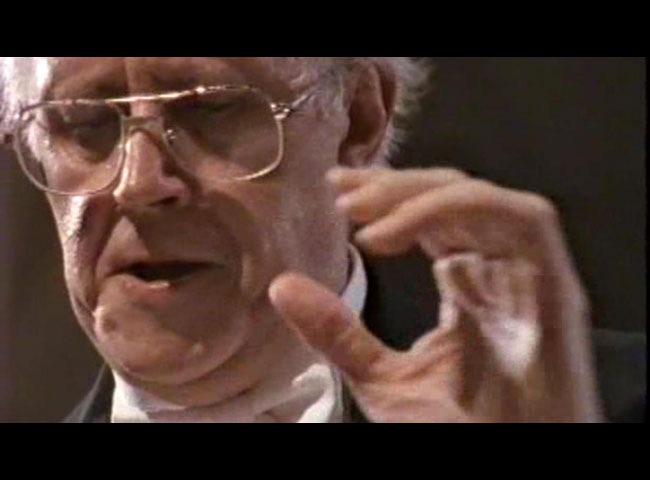Soldiers of Music: Rostropovich Returns to Russia
-
Réalisé par Albert Maysles, Susan Froemke, Peter Gelb, Bob Eisenhardt • Écrit par Bob Eisenhardt, Albert Maysles, Susan Froemke, Peter Gelb
-
États-Unis • 1991 • 88 minutes • Couleur
- Réalisation :
Albert Maysles, Susan Froemke, Peter Gelb, Bob Eisenhardt - Écriture :
Bob Eisenhardt, Albert Maysles, Susan Froemke, Peter Gelb - Image :
Albert Maysles, Edward Lachman, Martin Schaer, Wolfgang Becker - Montage :
Bob Eisenhardt
- Production (structure) :
Maysles Films - Participation :
Sony Classical, CAMI - Ayant droit :
Maysles Films
- N° ISAN :
non renseigné
Résumé
Le retour du violoncelliste et chef d'orchestre Mstislav Rostropovich en Union soviétique après seize années d'exil, alors que le pays semble vivre une nouvelle révolution - et la visite à la maison qui fut la sienne et dans laquelle il a abrité Soljenitsyne,
When the cellist and conductor Mstislav Rostropovich returned to the Soviet Union, after 16 years in exile, he could barely restrain his tears or his laughter. He downed a full glass of vodka in celebration, as he was welcomed at a dinner in the Moscow apartment that was once his home; he leaped through two feet of snow, eager to reach the door of his dacha behind which he had once harbored the Nobel-prize winning novelist, Alexander Solzhenitsyn; and he solemnly laid a wreath the size of a double-bass at the snow-covered grave of the dissident Andre Sakharov, where the musician and his daughter wept together, uncontrollably.
The film is a revealing portrait of an artist's visit home, returning to a country that seems to be undergoing yet another revolution. The Soviet minister of culture comments at a party for the returning musicians, that now a "new generation" is in power, one far different from the old "killers of art". Rostropovich also has no qualms about demanding, in a press conference, the full restoration of Solzhenitsyn's citizenship and the publication of his works.
Rostropovich and his wife are welcomed at the airport as if they were rock stars; Galina walks in the street in front of the Bolshoi Opera where she once starred and is recognized and praised; one of Rostropovich's concerts is interrupted by an overzealous fan praising him in the middle of a performance as a "Zeus". But the private moments captured on camera are the most revealing; Rostropovich visiting the communal apartment where he grew up and telling its elderly current residents, "we never said what wasn't true"; Galina standing in front of the Bolshoi, and near tears, feeling unable to pass through its doors.
This film is an account, in cinema verite style, of what happened when Rostropovich, along with his wife, the renowned soprano Galina Vishnevskaya, returned to the country that had stripped them of all rights to perform, demolishing their careers because they had dared to shelter and defend Solzhenitsyn.
Mot(s)-clé(s) thématique(s)
Comment avoir accès au film ?
-
Édition DVD
- Il n'existe pas d'édition DVD à notre connaissance
-
Accès VOD
- Il n'existe pas d'accès en VOD à notre connaissance
- Distribution
- Aide sur les moyens d'accéder à un film

